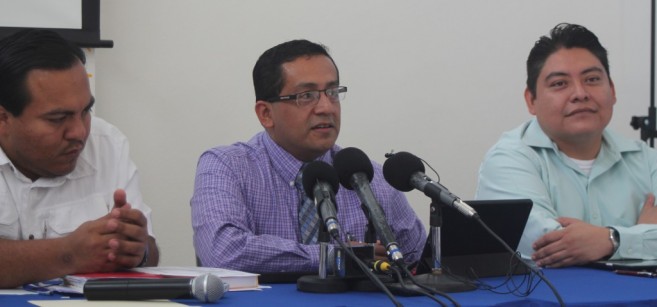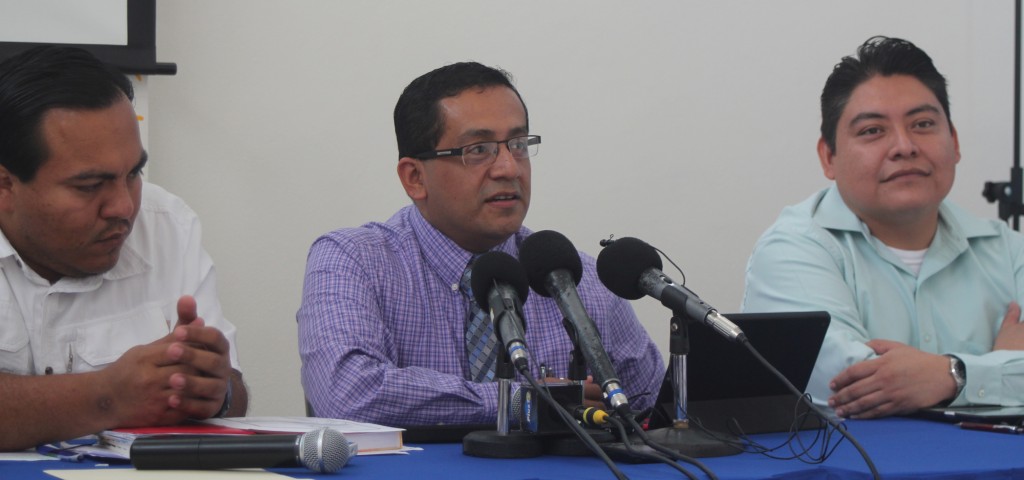The Zika virus’ presence in 26 countries of the Americas, and its possible correlation to Microcephaly and other neurological disorders in new-born babies, have caused world-wide alarm among health authorities, prompting the World Health Organization (WHO) Director-General Dr. Margaret Chan to call the first meeting of the International Health Regulations (IHR) Emergency Committee in Geneva, Switzerland on February first.
In Belize, Cabinet met last Tuesday, February 2nd to discuss the implications for Belize and what measures can be implemented, and what budget can be allocated to increase the extermination of Aedes egypti mosquito, the primary vector of the Zika virus. This included a stepping up of clean-up campaigns to eliminate all possible nesting sites for the mosquito.

The Ministry of Health also called a national Zika sensitization meeting of health workers at the Inspiration Center in Belize City on Tuesday, February 9th. All Regional and Deputy Regional Health Managers, Chiefs of Staff, Vector Control District Supervisors and Senior Public Health Inspectors were summoned to help integrate the National Preparedness and Response Plan into their regional operational plans.
There have been no confirmed cases of the Zika virus in Belize, Director of Health Services Dr. Marvin Manzanero assured the nation at a press briefing immediately after the meeting. However, Manzanero also admitted that it’s only a question of time before the virus reaches Belize; as the Zika virus is already present in neighboring Honduras, Guatemala and Mexico, though not yet in the neighboring Mexican state of Quintana Roo. There is no practical way to screen visitors at immigration checkpoints for the virus, which shows almost no symptoms in 80% of infected cases.
Belize has sent three samples of suspected cases to the regional laboratory of CARPHA in Trinidad, and so far one result has come back negative for Zika, Manzanero announced. The ministry is awaiting the results of the other two samples. The samples are also tested for Dengue and Chikungunya.
The difficulty in detecting possible infected persons is that 80% of cases are asymptomatic, they show little or no symptoms and so the afflicted might not visit a health clinic; even though they may be infected, Manzanero explained. The symptoms are also very similar to Dengue: fever, muscle pains, a general feeling of tiredness over the whole body, and a skin rash. Zika virus also produces a redness of the eyes, like pink eye. These symptoms generally last a week to 10 days, and patients are usually considered free of infection after 21 days. Where those feeling sick enough visit a health clinic, the health workers will also test for Dengue and Chikungunya, and if the patient indicates in their interview that they have visited a country where Zika virus is present, they will also be tested for Zika virus
Zika infection can also be transmitted sexually, warned Dr. Natalia Largaespada. Brazil has reported over 3,000 cases of Microcephaly in new-borns; where babies were born with shrunken or deformed brains, after their mothers were infected with Zika virus during their pregnancy. This correlation has not been scientifically confirmed, but the implications are alarming. For this reason, Largaespada warned that all women should avoid having unprotected sex with a partner who has visited a country where Zika is present. She advises men who have visited Zika countries to use a condom for 28 days after their return, and if confirmed that they were infected with Zika for them to use condoms for the next six months to prevent the transmission of Zika to their partner. The Dr went on to say that health authorities expect the public response to be similar to their efforts to prevent HIV/AIDS, and that perhaps only one in 10 cases of persons infected with Zika will actually seek treatment.
Largaespada also advises all pregnant women to avoid being bitten by mosquitoes, by applying mosquito repellent, by using clothing with long sleeves and to cover as much of the body as possible. She also advises using mosquito netting when sleeping at night or even when taking a nap during the day. Screening your home would also help.
Kim Bautista of the national Vector Control Program said they will continue with their efforts to remove all possible mosquito nesting sites, and also with their spraying program.


